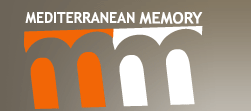Veterans of French Africa in Marseille |

|
Collection title
Reportages régionaux pour le journal national
First broadcast date
07/11/1958
Abstract
10,000 French Muslims participated in the parade of 14 July 1958 on the Champs Elysees. Veterans, African or Arab, who had fought for France, they land on the banks of La Joliette, Marseilles harbor, before reaching Paris by train.
Primary theme
Contemporary historical challenges 19th-20th c.
Secondary themes
- Society and way of life / Festivals and traditions
Map locations
- France - South East - Marseille
Context
Veterans of French Africa in Marseille
Jean Marie Guillon
This news item is a piece of pure imperial propaganda in its most classic form – in its aims, the way it is filmed and the continuous music-track of Les Chants des Africains. The arrival at Marseille of delegations of veterans from North africa and their departure from the railway station to Paris for the July 14th parade is not, in the true sense, an event. It was not the first time, nor the last, that they were brought across for military remembrance parades in metropoliotain France. And contrary to what people mistakenly say today, there was no attempt to hide or down-play the important part they had played in the liberation of France – indeed their contribution is part of the traditional colonial argument used as justification by those wanting to keep the empire within the French orbit.
The news report shows the atmosphere after the fall of the 4th Republic in May 1958. Many of those who applauded General de Gaulle's return to power deluded themselves about his true convictions and beliefs. The commentary illustrates just this, unafraid of being heavy-handed in both tone and content -- this was after all the time when the army organised demonstrations in Algeria to show fraternising between North Africans and Europeans. The Chants des Africains, composed in 1943 to be the Army of Africa's anthem, became the song of those who wanted Algeria to remain French. The report is thus signicative of an era, but it also is responding to immediate political aims.
De Gaulle needed the support of the people, both to impose his authority in France and Algeria, and to reform the administrative institutions, particularly by creating a new Constitution offering a political framework to the colonies, but which could only be ratified by a referendum of the whole French Community. De Gaulle was a realist. Without doubt he was convinced of the need to separate the fire, both in Algeria as in French West Africa, and that the emancipation of the territories dominated by France was inevitable. But he wanted to maintain his influence, control this evolution and if he couldn't hang on to Algeria at least negotiate from a postion of strength. The veterans are, most often, the best way of expressing France's hold over the people of the country (natives as they are often still called) and thus the importance of this Juy 14th can be understood, particuarly since they will be asked to vote in the referendum.
The general, during his first journey to Algeria from June 4th to 6th, evoked the fraternity which united "ten million Frenchmen from Algeria" and the equality of rights which should be established between them. On his second visit, at the beginning of July, he confirmed that everyone – even women – should vote to give their opinion on the new constitution. He delivered this message to the "huge and free community" of people overseas, on July 13th, on the eve of the big parade in Paris. At the same time he was preparing a huge tour of black Africa in August which took him from Madagascar across to Senegal, passing through, amongst other places, Brazzaville where on January 30th 1944 there had been a famous conference opening up the possibilities of freedom to the colonised people.

















